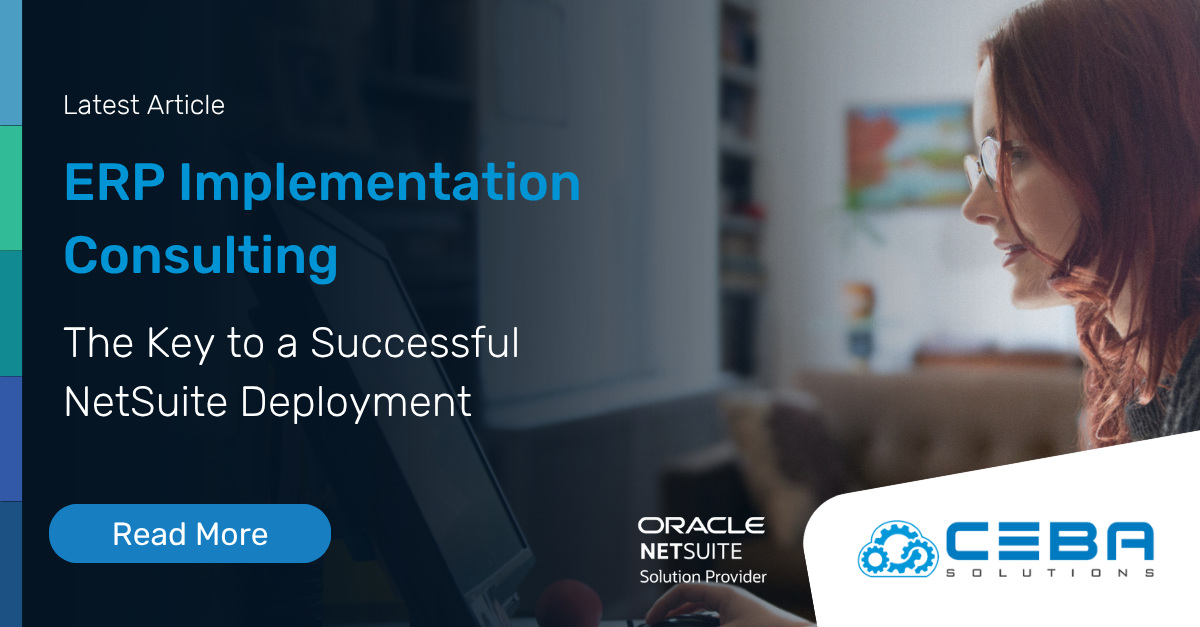
Managing Multi-Entity Accounting for Recycling Companies
Managing Multi-Entity Accounting for Recycling Companies
Did you know that the waste and recycling industry generates over 450 million tons of material every year in the United States alone? With such a massive scale of operations, effective financial management by a skilled finance team and a robust accounting system is crucial for recycling companies to streamline their processes, maximize profitability, and contribute to the circular economy. For a busy recycling business, managing the finances can be as varied and complex as the materials they handle. From paper to metals and from wood to electronics, each material brings its own unique set of challenges.
In this article, we will explore the importance of multi-entity accounting for recycling companies and how industry-aligned accounting software can revolutionize their financial management practices, improve profits and streamline business processes across various profit centers.
Key Takeaways:
- Efficient financial management is crucial for the success of recycling companies.
- Multi-subsidiary accounting involves managing the finances of multiple entities within a recycling company.
- Dedicated accounting software can streamline processes, ensure accurate financial statements, and report profits across all business entities.
- Key features to consider when choosing multi-subsidiary accounting software for recycling companies.
The Benefits of Multi-Entity Accounting Software for Recycling Companies
Implementing dedicated multi-entity accounting software can bring numerous benefits to recycling companies, including streamlined financial statements for both the subsidiary and parent company. Such software enables efficient management of multiple business entities, providing a centralized platform for tracking financials, automating processes, and generating accurate reports.
One of the key advantages of multi-entity accounting software is its ability to streamline tasks like invoicing, billing, and accounts payable/receivable. By consolidating these processes into a single system, recycling companies can improve accuracy and efficiency while reducing manual errors and duplicate work.
Multi-entity accounting software also facilitates accurate financial reporting across all entities within the company. It ensures that each entity's financial data, including the recycling business and parent company, is accurately recorded and consolidated, allowing for comprehensive reporting and analysis. This enables companies to make data-driven decisions and gain valuable insights into their business performance.
By leveraging recycling accounting software specifically designed for multi-subsidiary financial management, recycling companies can optimize their operations, improve financial transparency, and achieve greater profitability.
Features to Consider in Multi-Entity Accounting Software for Recycling Companies
When choosing multi-entity accounting software for recycling companies, it is important to consider various features that can help optimize financial management and streamline operations. Here are some key features to look for:
Multi-Entity Financial Reporting
The software should provide comprehensive reporting capabilities that allow for accurate and consolidated financial reporting across all entities within the recycling company. This includes generating balance sheets, income statements, cash flow statements, and other financial reports.
Integration with Waste Management Monitoring Systems, Scales, Cameras, and Identification Scanners
Look for accounting software that can seamlessly integrate with waste management systems for recycling businesses to ensure smooth data flow and eliminate the need for manual data entry. This integration can improve accuracy, save time, and reduce errors in financial data.
Automated Invoicing and Billing
Efficient invoicing and billing processes are crucial for recycling companies. The software should offer automated invoicing and billing features, allowing for easy generation and management of invoices, tracking of payments, and integration with accounting records.
Advanced Cost Allocation
Recycling companies often need to allocate costs across multiple entities or projects. Look for software that offers advanced cost allocation capabilities, allowing for accurate tracking and allocation of costs to different entities, departments, or projects.
Reporting at the Profit Center Level
Reporting at the Profit Center Level is a critical feature for recycling companies when selecting multi-entity accounting software. Profit center reporting facilitates more informed decision-making by providing granular insights into revenue streams, cost structures, and profitability metrics. For recycling companies, which often operate across various locations and deal with different types of materials, such detailed reporting is invaluable for optimizing operations and enhancing overall financial health.
Cross-Entity Inventory Management
Many recycling companies deal with inventory management, such as tracking the quantity and value of recyclable materials. Choose software that offers inventory management features, including real-time tracking, reporting, and analysis of inventory levels.
These features can greatly enhance the financial management and efficiency of recycling companies. By carefully evaluating and selecting the right multi-entity accounting software, businesses can streamline their financial processes, improve reporting accuracy, and optimize operational performance.
"Effective financial management through multi-entity accounting software is essential for recycling companies to optimize operations and enhance profitability. This technology offers streamlined financial reporting, efficient process automation, and accurate data consolidation across all business entities, supporting informed decision-making and business growth." - Zabe Siddique, CEO - CEBA Solutions
Choosing the Right Multi-Entity Accounting Software for Your Recycling Company
Selecting the right multi-entity accounting software is crucial for the success of your recycling company. When making your decision, consider the following factors:
Recycling Business Specific Functionality
Evaluate the features and capabilities of the software. Look for robust capabilities that meet the accounting needs of recycling companies, such as waste management accounting, multi-entity reporting, and recycling industry-specific functionalities.
Multi-Currency and Global Payments
For recycling companies that operate globally, dealing in multiple currencies is a common challenge. This is where software solutions that offer currency consolidation become invaluable. They simplify global payments and foreign currency trading, providing a clear picture in the financial statements, balance sheet, and general ledger.
Integration Capabilities
Check if the software integrates seamlessly with other systems used in your organization. Integration with CRM, ERP, and waste management technology such as money draws, ATMs, Cameras, Scanners and Scales, can streamline operations and enhance data accuracy and accessibility.
Recycling companies often operate across multiple sites and countries, dealing with various commodities and services. With such diversity, having integrated workflows is crucial. By implementing a unified back office system, companies can ensure that every touch point - from purchase orders to sales contracts - is seamlessly managed. Zabe Siddique - CEO- CEBA Solutions
Reporting Capabilities
Evaluate the reporting capabilities of the software. Look for features that allow you to generate comprehensive financial reports, including income statements, balance sheets, and cash flow statements across all entities, while still being able to segment these reports by other factors such as location, product category, department, or profit center.
Business Intelligence Built for the Recycling Industry
In an industry where the price of commodities can fluctuate significantly, recycling companies need real-time business intelligence. By leveraging data from every transaction, they can make informed decisions. Whether it's about controlling the price at which commodities are bought or deciding the right time for selling, business intelligence tools can provide invaluable insights.
Enhancing Customer and Supplier Relationships
At the end of the day, the success of recycling companies heavily relies on their relationships with customers and suppliers. By using a centralized database and application, companies can maintain all essential information and data sets, improving communication and ensuring that contracts and invoices are managed effectively.
Example Recycling Software Evaluation Matrix

Implementation and Training for Multi-Entity Accounting Software
Implementing multi-entity accounting software for your recycling company is a crucial step towards efficient financial management and accurate reporting. However, successful implementation requires careful planning and proper training for your accounting team. Take the following steps to ensure a smooth transition:
1. Define Your Implementation Goals and Requirements
Before selecting a multi-entity accounting software, clearly define your implementation goals and requirements. Consider factors such as the number of entities you need to manage, integration with existing systems, and specific features required for your recycling company's financial management.
2. Choose the Right Software Solution
Research and evaluate different multi-entity accounting software options. Look for solutions specifically designed for the recycling industry, with features that cater to the unique needs of waste management accounting. Consider factors such as scalability, user-friendliness, and compatibility with your existing technology infrastructure.
3. Create an Implementation Timeline
Develop a realistic timeline for the implementation process, taking into account the complexity of your accounting processes and the availability of your accounting team. Ensure that the implementation timeline aligns with your overall business objectives and any legal or regulatory requirements specific to your industry.
4. Train Your Accounting Team
Provide comprehensive training to your accounting team on how to use the multi-entity accounting software effectively. This may include training sessions, workshops, or online tutorials. Make sure your team understands the software's features and functionalities, as well as how to enter data accurately and generate financial reports specific to each entity.
5. Test and Finetune the Software
Prior to going live with the multi-entity accounting software, conduct thorough testing to identify any potential issues or areas for improvement. Collaborate with your software provider to address any concerns and fine-tune the system according to your requirements.
6. Implement Data Migration and Integration
If you are transitioning from existing accounting systems, ensure a seamless data migration process. Work with your software provider to import relevant data into the new software and integrate it with other business systems, such as inventory management or customer relationship management platforms.
7. Monitor and evaluate the implementation
Once the multi-entity accounting software is up and running, closely monitor its performance and gather feedback from your accounting team. Continuously evaluate its effectiveness in streamlining processes, improving reporting accuracy, and enhancing overall financial management for your recycling company.
8. Provide ongoing support and training
Offer ongoing support and additional training to your accounting team as needed. Keep them updated on new features or software updates that can further optimize their workflow and provide them with the necessary resources to leverage the full potential of the multi-entity accounting software.
By following these implementation and training steps, your recycling company can maximize the benefits of multi-entity accounting software, streamline financial management processes, and make data-driven decisions to drive growth and profitability in the recycling industry.
"Selecting the right multi-entity accounting software for your recycling company hinges on evaluating specific features that align with the unique challenges of the recycling industry. Prioritize software with robust integration capabilities, global payment functionalities, and industry-specific insights to enhance operational efficiency and financial accuracy." - Zabe Siddique, CEO - CEBA Solutions
Streamlining Operations with Multi-Entity Financial Management
Multi-entity financial management solutions play a crucial role in streamlining operations for recycling companies. By effectively managing the financial aspects of multiple entities within a company, these solutions enable recycling businesses to optimize their processes, achieve greater efficiency, and drive profitability.
Centralized Financial Data
One of the key benefits of multi-entity financial management software is the ability to centralize financial data and reporting. With a centralized platform, recycling companies can easily track the financial performance of each entity, analyze revenue and expenses, and monitor overall profitability.
Streamlined Processes
Multi-entity financial management solutions automate and streamline key processes such as invoicing, billing, and accounts payable/receivable. This automation reduces manual errors, improves data accuracy, and enhances overall operational efficiency. By minimizing administrative tasks, recycling companies can focus more on core business activities and strategic decision-making.
Comprehensive Financial Reporting
Another advantage of multi-entity financial management software is the ability to generate comprehensive financial reports. These reports provide valuable insights into the financial health of each entity and the overall company. Recycling companies can utilize these reports to identify trends, evaluate performance across different entities, and make data-driven decisions to drive growth and profitability.
Enhanced Compliance
Implementing multi-entity financial management solutions also improves compliance with accounting standards and regulations specific to the recycling industry. These solutions are designed to accommodate the unique accounting needs and requirements of recycling companies, ensuring accurate and compliant financial reporting.
By streamlining operations through multi-entity financial management, recycling companies can effectively manage their finances, improve operational efficiency, and make informed decisions to drive growth and success in the recycling industry.
NetSuite OneWorld for Recycling Enterprises
NetSuite OneWorld is a comprehensive cloud-based Enterprise Resource Planning (ERP) solution designed to meet the complex needs of modern businesses, including those in the recycling industry. For recycling companies, which often operate across multiple locations and jurisdictions, the multi-entity accounting capabilities of NetSuite OneWorld are particularly beneficial. Here's how NetSuite OneWorld supports these companies with their unique accounting needs:
Centralized Financial Management
Recycling companies can manage multiple subsidiaries, business units, or legal entities under a single NetSuite account. This centralization streamlines financial consolidation and provides real-time visibility into the financial health of the entire organization. With OneWorld, the tedious process of aggregating data from disparate systems is eliminated, allowing for more efficient financial reporting and analysis.
Multi-Currency and Multi-Language Support
As recycling companies expand globally, they encounter transactions in various currencies and business interactions in different languages. NetSuite OneWorld seamlessly handles multi-currency transactions and reporting, which is crucial for accurate financial statements and compliance. Additionally, the platform's multi-language capabilities ensure that users across the globe can utilize the system in their local language, reducing barriers to effective communication and operation.
Local and Global Compliance
The recycling industry is heavily regulated, and companies must adhere to a multitude of environmental laws and accounting standards. NetSuite OneWorld helps recycling companies stay compliant with both local and global tax regulations. The system is updated regularly to reflect the latest tax rules and reporting requirements, thereby reducing the risk of non-compliance and associated penalties.
Intercompany Transactions and Eliminations
Recycling companies with multiple entities often engage in intercompany transactions. NetSuite OneWorld simplifies the management of these transactions by automating intercompany accounting and eliminations. This ensures accuracy in financial statements and reduces the manual work typically associated with intercompany reconciliations.
Cost Tracking and Allocation
Understanding the cost implications of recycling processes is critical. NetSuite OneWorld offers robust cost tracking and allocation features that enable recycling companies to accurately assign costs.
Final Thoughts
Effective multi-entity accounting is crucial for recycling companies to efficiently manage their financials and ensure accurate reporting across all entities. By implementing dedicated accounting software designed for the waste and recycling industry, companies can streamline processes, enhance operational efficiency, and make data-driven decisions. The right multi-entity accounting solution provides a centralized platform for managing multiple companies, improving financial reporting and automating tasks.
By leveraging multi-entity accounting software, recycling companies can gain a holistic view of their financial health, automate tasks like invoicing and billing, track accounts payable and receivable, and generate accurate financial reports for all entities within the organization. This enables them to make informed business decisions, identify cost-saving opportunities, and drive growth in the competitive recycling industry.
Book a Demo
If you are interested in booking a demonstration, please schedule an interactive session with one of our product experts. This will give you the opportunity to see our solutions in action and ask any questions you may have.
FAQ
Why do recycling companies need multi-entity accounting software?
Recycling companies require efficient financial management to optimize operations and increase profitability. Multi-entity accounting software can streamline accounting processes and ensure accurate reporting across all entities.
What are the benefits of using multi-entity accounting software for recycling companies?
Multi-entity accounting software enables efficient management of multiple entities, providing a centralized platform for tracking financials, automating processes, and generating accurate reports.
What features should recycling companies consider when choosing multi-entity accounting software?
Important features to consider include centralized tracking of financials, automation of tasks such as invoicing and billing, integration with other business systems, and accurate financial reporting across all entities.
How have recycling companies benefited from implementing multi-entity accounting software?
Several recycling companies have experienced significant benefits, such as improved financial reporting, streamlined operations, enhanced efficiency, and better scalability.
What should recycling companies consider when choosing the right multi-entity accounting software?
Factors to consider include scalability, ease of use, integration capabilities, customer support, and compatibility with the specific needs of the recycling industry.
What steps are involved in implementing and training for multi-entity accounting software?
Key steps include careful planning, selecting the right software, proper training for the accounting team, data migration, and ongoing support and maintenance.
How can multi-entity accounting software enhance financial reporting for recycling companies?
The right software can provide comprehensive financial reports, improve accuracy, and provide insights into the financial performance of multiple entities within a recycling company.
How can multi-entity financial management solutions streamline operations for recycling companies?
They streamline tasks such as invoicing, billing, and accounts payable/receivable, integrate with other business systems, and enhance overall operational efficiency.










